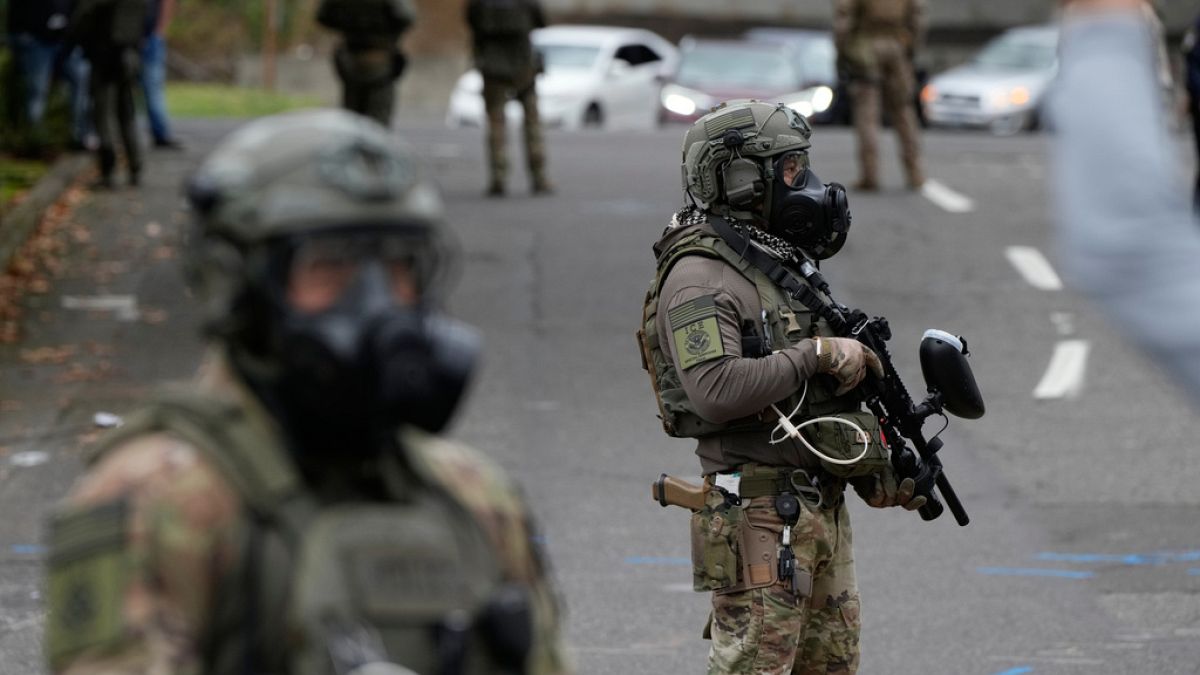A federal judge in Oregon temporarily blocked President Donald Trump’s administration from deploying the National Guard in Portland, ruling Saturday in a lawsuit brought by the state and city.
US District Judge Karin Immergut issued the order pending further arguments in the suit, saying the relatively small protests the city has seen did not justify the use of federalised forces, and allowing the deployment could harm Oregon’s state sovereignty.
“This country has a longstanding and foundational tradition of resistance to government overreach, especially in the form of military intrusion into civil affairs,” Immergut wrote. She later continued, “This historical tradition boils down to a simple proposition: this is a nation of Constitutional law, not martial law.”
Generally speaking, the president is allowed “a great level of deference” to federalise National Guard troops in situations where regular law enforcement forces are not able to execute the laws of the United States, the judge said, but that has not been the case in Portland.
The judge’s ruling comes as Oregon state and city officials sued to stop the deployment last week, one day after the Trump administration announced that 200 Oregon National Guard troops would be federalised to protect federal buildings, calling the city “war-ravaged.” Oregon officials said that characterisation was ludicrous.
The US Immigration and Customs Enforcement ICE building in the city has been the site of nightly protests that typically drew a couple of dozen people in recent weeks before the deployment was announced.
Plaintiffs were able to show that the demonstrations at the immigration building were not significantly violent or disruptive ahead of the president’s order, the judge wrote, and “overall, the protests were small and uneventful.”
“The President’s determination was simply untethered to the facts,” Immergut wrote.
White House says it will appeal
In response, the Trump administration late Saturday filed a notice of appeal to the 9th US Circuit Court of Appeals.
Following the ruling, White House spokesperson Abigail Jackson said that “President Trump exercised his lawful authority to protect federal assets and personnel in Portland following violent riots and attacks on law enforcement — we expect to be vindicated by a higher court.”
Last month, a federal judge ruled that the president’s deployment of some 4,700 National Guard soldiers and Marines in Los Angeles this year was illegal, but he allowed the 300 who remain in the city to stay as long as they do not enforce civilian laws.
The Trump administration appealed, and an appellate panel has put the lower court’s block on hold while it moves forward.
Portland protests grew after deployment announcement
On Saturday, before the ruling was released, roughly 400 people marched to the ICE facility. The crowd included people of all ages and races, families with children and older people using walkers.
Federal agents responded with chemical crowd control munitions, including tear gas canisters and less-lethal guns that sprayed pepper balls. At least six people were arrested as the protesters reached the ICE facility.
Later in the evening, federal agents again emerged from the facility and deployed tear gas on a crowd of about 100 people.
The Portland protests have been limited to a one-block area in a city that covers about 375 square km and has about 636,000 residents. They grew somewhat following the 28 September announcement of the guard deployment.

